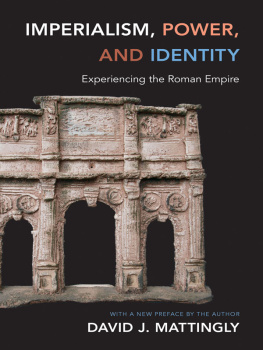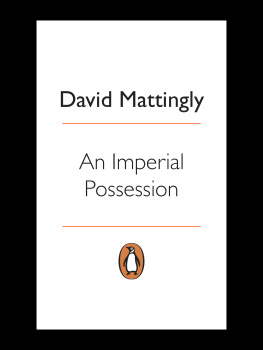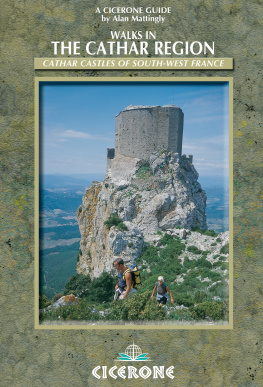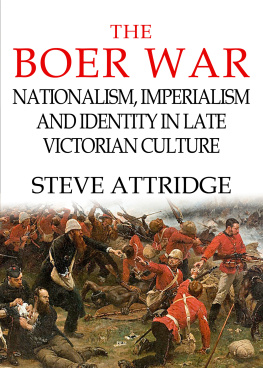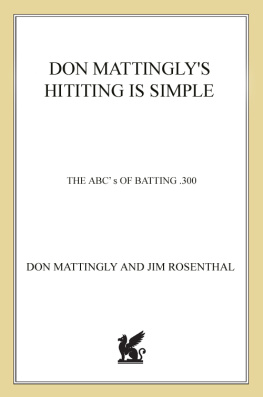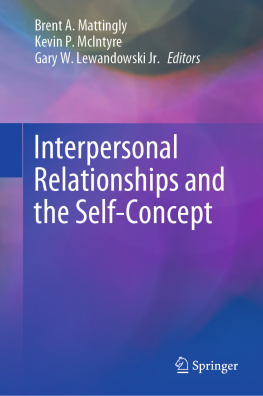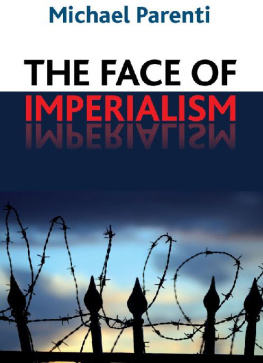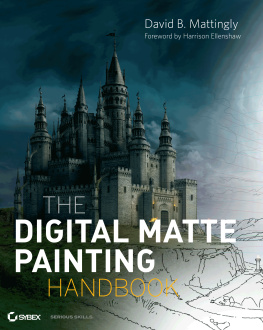Mattingly - Imperialism, Power, and Identity
Here you can read online Mattingly - Imperialism, Power, and Identity full text of the book (entire story) in english for free. Download pdf and epub, get meaning, cover and reviews about this ebook. year: 2013, publisher: Princeton University Press, genre: Politics. Description of the work, (preface) as well as reviews are available. Best literature library LitArk.com created for fans of good reading and offers a wide selection of genres:
Romance novel
Science fiction
Adventure
Detective
Science
History
Home and family
Prose
Art
Politics
Computer
Non-fiction
Religion
Business
Children
Humor
Choose a favorite category and find really read worthwhile books. Enjoy immersion in the world of imagination, feel the emotions of the characters or learn something new for yourself, make an fascinating discovery.
Imperialism, Power, and Identity: summary, description and annotation
We offer to read an annotation, description, summary or preface (depends on what the author of the book "Imperialism, Power, and Identity" wrote himself). If you haven't found the necessary information about the book — write in the comments, we will try to find it.
Mattingly: author's other books
Who wrote Imperialism, Power, and Identity? Find out the surname, the name of the author of the book and a list of all author's works by series.
Imperialism, Power, and Identity — read online for free the complete book (whole text) full work
Below is the text of the book, divided by pages. System saving the place of the last page read, allows you to conveniently read the book "Imperialism, Power, and Identity" online for free, without having to search again every time where you left off. Put a bookmark, and you can go to the page where you finished reading at any time.
Font size:
Interval:
Bookmark:

IMPERIALISM, POWER, AND IDENTITY
MIRIAM S. BALMUTH LECTURES IN ANCIENT HISTORY AND ARCHAEOLOGY
The Miriam S. Balmuth lectures are delivered annually at Tufts University through generous funding provided by the family and friends of Miriam S. Balmuth, professor of classics and art history at Tufts for more than forty years. The lectures are intended to explore the continuing relationship between antiquity and the contemporary world.
IMPERIALISM, POWER, AND IDENTITY
Experiencing the Roman Empire
David J. Mattingly
PRINCETON UNIVERSITY PRESS
PRINCETON AND OXFORD
Copyright 2011 Princeton University Press
Published by Princeton University Press, 41 William Street, Princeton, New Jersey 08540
In the United Kingdom: Princeton University Press, 6 Oxford Street, Woodstock, Oxfordshire OX20 1TW
press.princeton.edu
All Rights Reserved
Second printing, and first paperback printing, with a new preface by the author, 2014 Paperback ISBN 978-0-691-16017-7
The Library of Congress has cataloged the cloth edition of this book as follows
Mattingly, D. J.
Imperialism, power, and identity : experiencing the Roman empire / David J. Mattingly.
p. cm. (Miriam S. Balmuth lectures in ancient history and archaeology)
Includes bibliographical references and index.
ISBN 978-0-691-14605-8 (cloth : alk. paper)
1. RomeHistoryEmpire, 30 B.C.-476 A.D. 2. RomeForeign relations30 B.C. 476 A.D. 3. Roman provincesAdministration. 4. RomeEthnic relations. 5. RomansEthnic identity. 6. AcculturationRome. 7. Imperialism. 8. Power (Social sciences) I. Title.
DG271.M183 2011
| 937.06dc22 | 20102467 |
British Library Cataloging-in-Publication Data is available
This book has been composed in Sabon and Penumbra
Printed on acid-free paper.
Printed in the United States of America
10 9 8 7 6 5 4 3 2
In loving memory of Erica Mattingly
21 April 192931 July 2008
CONTENTS
LIST OF ILLUSTRATIONS
Illustration credits are noted in the captions where individuals or organizations have kindly granted copyright permission. Other illustrations are either my own photographs, were specially drawn for this book, or were originally produced for projects in which I have played a leading rolethe Fazzan Project (FP), the UNESCO Libyan Valley Survey (ULVS), and the Wadi Faynan Landscape Survey (WFLS). In this regard, I would like to pay particular thanks to the following for permissions to reproduce various figures: Graeme Barker (). Mark Kurtz kindly helped me source and obtain copyright permissions for a number of other illustrations.
LIST OF TABLES
FOREWORD
The Miriam S. Balmuth Lectureship in the Department of Classics at Tufts University was established in 2005 through the vision, generosity, and support of the family and friends of Miriam S. Balmuth, professor of classics, archaeology, and art history at Tufts from 1962 to 2004. Its purpose is to explore the continuing relevance of the study of antiquity to the modern world. Professor David Mattinglys inaugural lectures, Experiencing Empire: Power and Identity in the Roman World, delivered in April 2006 and published here in expanded form, affirms the merit of a lectureship dedicated to this purpose. Issues of power and identity lie at the core of our interest in the Roman Empire. From the late nineteenth century until the end of the Second World War, Roman rule and the role it played in influencing the identity of the peoples of the empire was viewed in positive terms, reflecting the mostly favorable views of imperialism and colonialism held by classical scholars throughout this period. But with the breakup of the European empires after World War II, assessments of Roman imperialism began to shift, albeit rather cautiously. Indeed, as Mattingly demonstrates in these lectures, classical historians and archaeologists have remained surprisingly hesitant to abandon entirely visions of the Roman Empire from the age of imperialism. His call, for example, to replace the outdated imperial-age concept of Romanization in favor of an approach emphasizing the insights provided by postcolonial studies is a bold attempt to transform the terms of the debate on the meaning of the Roman Empire in the contemporary world.
Mattingly backs up his call for a new vocabulary for interpreting the Roman imperial experience by applying a powerful postcolonial perspective to a diverse array of topics in the history of the empirethe exploitation of landscapes and resources, sexual relations, art, family values, native societiesto create a new and challenging vision of Roman power and imperialism. The empire evoked in these lectures is populated by people whose lives are severely challenged and exploited but also enhanced through their encounters with Roman power, and whose Roman identity, as a consequence, is as diverse and localized as we might have every reason to expect from an empire that stretched from the North Sea to the Sahara and the Atlantic to Mesopotamia.
It is with great pleasure, therefore, that I thank David Mattingly for his courage and conviction in preparing the first Miriam S. Balmuth Lectures. They represent an exemplary template on which to build a tradition of scholarship at Tufts that will strengthen the intellectual, cultural, and moral bonds that continue to link antiquity with the contemporary world.
R. Bruce Hitchner
Professor and Chair
Department of Classics
Tufts University
PREFACE
My Roman Empire
THE GENESIS OF THIS BOOK
This book has evolved from a series of lectures given at Tufts University in April 2006 that provided an excuse for me to reflect on an interconnected series of issues that had been individually engaging my attention for some time. My title to this introduction may seem somewhat presumptuous, but it is perspective onnot ownership ofthat is at issue here.
The invitation to deliver the inaugural series of Tufts lectures in memory of Miriam S. Balmuth induced in me equal feelings of pride and panic. I was very conscious of the honor bestowed, but equally aware of the obligation to measure up to the high standards of scholarship that she embodied. I never met Miriam but from what I know of her personality and her published work (especially her work on Sardinia and Iberia) I suspect she would have been interested in the theme of the lectures and this book. I would like to thank the family and friends of Miriam S. Balmuth for making possible the lecture series and this publication arising from it. Bruce and Becky Hitchner must take huge credit for creating the event at Tufts in April 2006, and I am particularly grateful to them for their hard work, hospitality, and friendship.
I am not a classicist nor a Roman historian per se, but an archaeologist with particular interests in the Roman Empire and more generally in the nature of imperialism and its material effects on colonial societies. The suggestion that the theme should link between antiquity and modernity was a positive encouragement in that much of my work over the past decade on the theme of Roman imperialism had been exploiting the space between the historiography of classical archaeology and postcolonial studies.
The lectures on which the core of this book is based were offered as a series of reflections on the theme of Experiencing Empire, with a leaning toward archaeological and comparative approaches rather than purely historical ones. In the course of the four lectures I explored a number of themes that have interested me in recent years and I must reiterate that this is very much a personal perspective and one that takes a relatively pessimistic view of the impact of the Roman Empire on its subjects at large. This book is structured around four lectures: From Imperium to Imperialism: Writing the Roman Empire; Power, Sex and Empire; Ruling Regions, Exploiting Resources; and Identity and Discrepancy. These are picked up by the four main sections of the book: Imperialisms and Colonialisms; Power; Resources; and Identity.
Next pageFont size:
Interval:
Bookmark:
Similar books «Imperialism, Power, and Identity»
Look at similar books to Imperialism, Power, and Identity. We have selected literature similar in name and meaning in the hope of providing readers with more options to find new, interesting, not yet read works.
Discussion, reviews of the book Imperialism, Power, and Identity and just readers' own opinions. Leave your comments, write what you think about the work, its meaning or the main characters. Specify what exactly you liked and what you didn't like, and why you think so.

